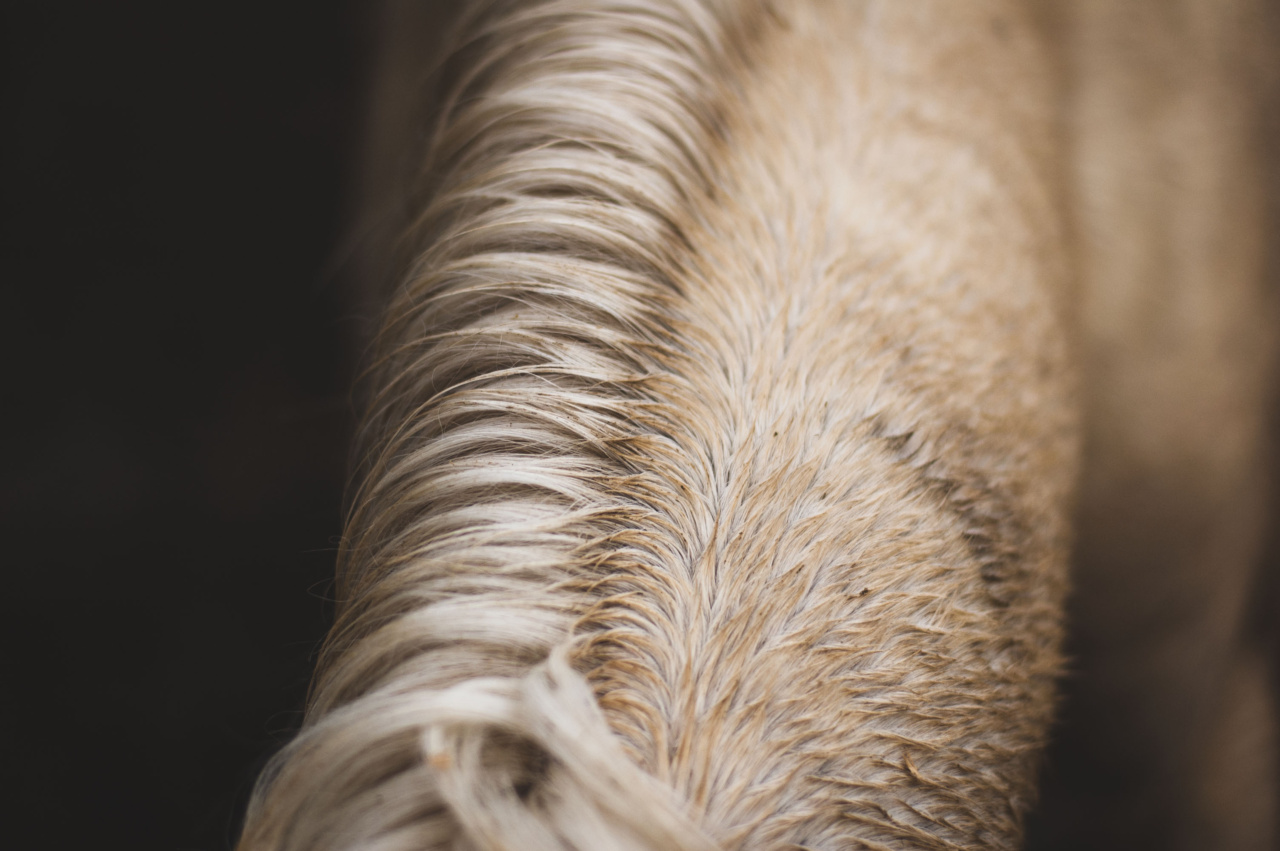Our hair is a crucial part of our appearance and identity, and we all want to have healthy, strong, and beautiful hair. However, many factors can affect the health of our hair strands, causing them to become weak, brittle, thin, or falling out.
Understanding the causes of hair strand problems is essential to find the right solutions and keep our hair looking and feeling its best. In this article, we will explore the common causes of hair strand issues and suggest tips and remedies to improve hair health.
Frequent Heat Styling
Using hot tools to style our hair can be quick and convenient, but it can also damage our hair strands over time. Heat styling tools like blow dryers, straighteners, or curling irons can dry out the hair and lead to split ends, breakage, and frizz.
To minimize the damage, it’s crucial to use heat protectant products, lower the temperature setting, and limit heat styling to once or twice a week. It’s also beneficial to air dry our hair whenever possible and use low-manipulation hairstyles that don’t require heat.
Chemical Treatments
Chemical treatments such as hair dyes, relaxers, perms, or keratin treatments are popular ways to change our hair’s color or texture. However, these procedures can weaken the hair strands and cause them to break and fall out.
It’s essential to choose reputable salons and stylists who use high-quality products and follow safety protocols. It’s also crucial to follow the aftercare instructions, such as avoiding hot tools or swimming for a few days, and using nourishing hair masks or oils to restore the hair’s moisture and strength.
Poor Nutrition
What we eat can significantly affect our hair health. Our hair follicles need a balanced diet with enough vitamins, minerals, and proteins to grow strong and healthy hair strands.
A diet that lacks essential nutrients, such as biotin, iron, vitamin A, C, D, or E, can lead to hair loss, thinning, or dullness. To improve our hair’s nutrition, we can eat a variety of foods such as eggs, nuts, fish, spinach, avocados, or sweet potatoes. We can also take supplements if we have a particular deficiency or consult a nutritionist for personalized advice.
Hormonal Changes
Hormonal changes are a common cause of hair loss or thinning, especially in women. Hormonal imbalances due to pregnancy, menopause, or polycystic ovary syndrome (PCOS) can affect our hair’s growth cycle, leading to shedding or hair loss.
Thyroid disorders, such as hypothyroidism or hyperthyroidism, can also affect our hair health. If we suspect that our hair strand issues are due to hormonal changes, it’s crucial to consult a healthcare provider who can diagnose the underlying condition and suggest appropriate treatment options.
Stress or Anxiety
Stress and anxiety can affect our hair health in various ways. Experiencing chronic stress can disrupt our hair’s growth cycle, cause inflammation, or trigger autoimmune disorders that affect our hair follicles.
Stress can also lead to unhealthy habits, such as overeating, smoking, drinking alcohol, or not getting enough sleep, which can further damage our hair. To manage stress and anxiety, we can practice self-care routines, such as meditation, yoga, exercise, or therapy. We can also adopt healthy habits like eating well, sleeping regularly, and avoiding unhealthy substances.
Tight Hairstyles
Tight hairstyles, such as braids, cornrows, or tight ponytails can be stylish and practical, but they can also lead to hair damage and loss. Wearing these hairstyles too often or too tight can pull on our hair strands and weaken them.
This can cause traction alopecia, a type of hair loss that affects the hairline, temples, or nape of the neck. To avoid traction alopecia, we should choose looser hairstyles, avoid wearing them for too long, and give our hair a break from time to time.
Environmental Factors
Environmental factors such as sun exposure, humidity, pollution, or hard water can also affect our hair health. Exposure to ultraviolet (UV) rays can damage our hair’s proteins and pigments, causing discoloration, dryness, and brittleness.
Humidity can cause frizz, while pollution can clog our hair follicles and scalp pores, leading to hair loss and irritation. Hard water, which contains high levels of minerals like calcium and magnesium, can make our hair feel dry and rough.
To protect our hair from these factors, we can wear hats or scarves, use UV-protective hair products, wash our hair regularly, and use water filters to soften hard water.
Genetic Predisposition
Finally, genetic predisposition can also play a role in our hair health. Some people are more prone to developing hair strand issues or hair loss due to their genetic makeup.
For example, if our parents or grandparents had a history of hair loss or thinning, we may be more likely to experience the same. While there may not be much we can do to change our genetics, we can still take steps to care for our hair and minimize the damage. The earlier we start taking care of our hair, the better chances we have of keeping it healthy and strong.
Solutions for Hair Strands Issues
If we are experiencing hair strand issues due to any of the factors mentioned above, we can take some steps to improve our hair health. Here are some tips and remedies to try:.
Tip 1: Use Gentle Hair Care Products
Choosing gentle hair care products, such as sulfate-free shampoos, mild conditioners, or natural hair masks, can help minimize the damage caused by chemicals and harsh ingredients.
It’s also important to choose products that are suitable for our hair type and texture, such as oily, dry, curly, or straight hair. We should also avoid over-washing our hair, as this can strip away its natural oils and make it dry and brittle.
Tip 2: Massage and Condition Your Scalp
Massaging our scalp with natural oils, such as coconut, olive, or jojoba oil, can promote hair growth and circulation, soothe inflammation, and moisturize the scalp.
Using a conditioner can also help detangle and soften our hair, making it easier to style and preventing breakage. Massaging our scalp and conditioning our hair regularly can also help remove buildup, such as sweat, dirt, or product residue, which can clog our hair follicles and slow down hair growth.
Tip 3: Adopt a Healthy Lifestyle
Living a healthy lifestyle can have a positive impact on our hair health.
Eating a balanced diet, staying hydrated, getting enough sleep, exercising regularly, and avoiding smoking or excessive alcohol consumption can all contribute to healthy and strong hair strands. We can also protect our hair from sun exposure and environmental factors by wearing hats or using scarves or protective hair products.
Tip 4: Try Natural Remedies
There are many natural remedies that we can try to improve our hair health, such as using aloe vera, onion juice, egg yolks, or henna.
These ingredients can provide nourishment, hydration, and shine to our hair, as well as promote hair growth and thickness. However, it’s important to test these remedies on a small patch of skin before applying them to our entire scalp or hair, as some people may be allergic or sensitive to certain ingredients.
Conclusion
Our hair strands are a vital part of our appearance and confidence, and taking care of them should be a priority.
By understanding the common causes of hair strand issues and adopting healthy habits and remedies, we can improve our hair’s health and appearance, prevent damage and hair loss, and feel confident and beautiful.































